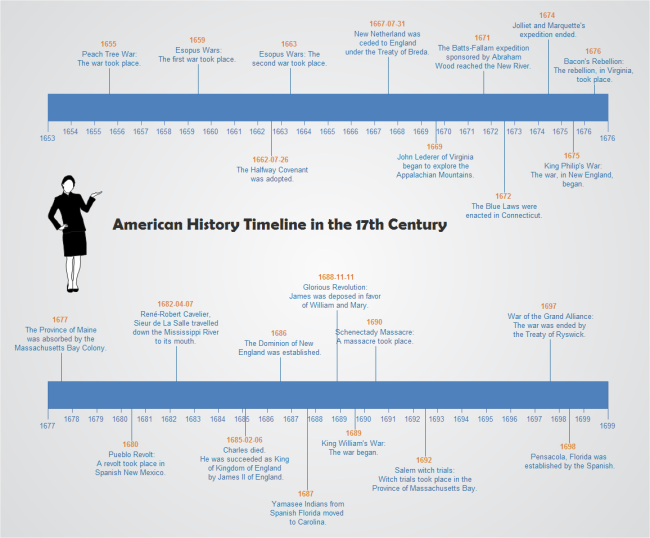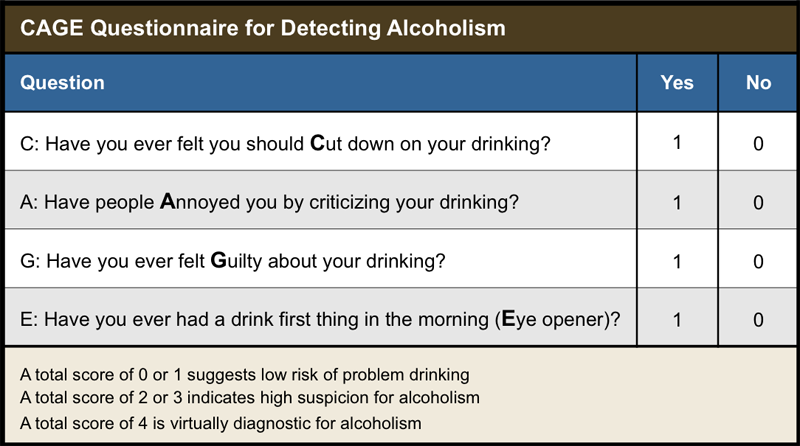Jobs for high functioning autistics
30 Great Jobs for People on the Autism Spectrum
As more and more individuals with autism enter the workforce, it is becoming clear that finding just the right job presents a bit of a challenge. That’s why we began researching 30 ideal jobs for people on the autism spectrum. Because each person is unique, and no one’s experience with autism is the same, we included on our list a variety of jobs, from janitor to veterinarian. While some will be most suitable for those who may be non-verbal or who have additional challenges, others will be most appropriate for those with high-functioning autism or Asperger’s. However, all of our listed jobs were recommended to us by those on the autism spectrum. We’ve even included the average salary for each job, according to PayScale. Keep scrolling for 30 ideal jobs for people on the autism spectrum!
Accountant
Average Salary: $51,024
For the high-functioning person with autism who enjoys crunching numbers, the job of accountant is ideal. Accountants usually work for companies, but sometimes work for themselves. Tasks include:
- managing budgets
- filing taxes
- keeping balance sheets
- creating sales and cash flow reports, to name a few.
Actuary
Average Salary: $90,264
Actuaries are analysts for insurance companies. They use statistical analysis to determine how insurance companies can stay financially healthy, how likely an accident is to occur, and what types of policies should cost more than others. People who become actuaries typically work in office environments, have a good head for numbers and large amounts of data, and enjoy statistics.
Architect
Average Salary: $66,120
Those who enjoy building and designing are sure to like the idea of becoming an architect. An architect designs and develops structures like houses and buildings. An architect must be organized enough to work on multiple projects at once, skilled enough to communicate with a team, and disciplined enough to ensure accurate designs.
Auditor
Average Salary: $56,244
If you like mathematics and are skilled enough with numbers to catch errors, then the job of auditor might be ideal. Many auditors are self-employed, while others work for companies and the government. Auditors are responsible for checking the accuracy of:
- business records
- municipal records
- financial records.
Automotive Technician
Average Salary: $49,902
Love cars? Good with your hands? Then how about a job as an automotive technician? Automotive technicians perform routine repairs and maintenance on vehicles. They may work at an auto repair shop, a car dealership, or have their own business. While some interaction with customers may be necessary, most of the job is working alone on the car or truck.
Carpenter
Average Salary: $48,372
The carpentry profession is great for anyone who enjoys building, working with their hands, and spending time outdoors. Carpenters create the wooden products that are used to build structures, doors, window frames, and furniture, among other things. Required skills include:
Carpenters create the wooden products that are used to build structures, doors, window frames, and furniture, among other things. Required skills include:
- working with tools
- basic math proficiency
- the ability to read blueprints.
Cashier
Average Salary: $22,500
A cashier at a retail store or a grocery store is one of the most popular jobs for people on the autism spectrum. Though it involves interaction with customers, the job also follows a routine, and varies very little. The happiest cashiers are those who find jobs at their favorite places.
Caterer
Average Salary: $36,787
There are lots of people on the autism spectrum who enjoy cooking. Baking, which requires strict adherence to a recipe, is especially popular among those with ASD. For someone who would like to make a career out of this interest, then the role of caterer is a great option. Caterers must work with customers to develop and create a menu for:
- wedding receptions
- baby showers
- business conferences
- other special events.

If catering interests you, but you’re intimidated by customer service, consider applying for jobs in a bakery or at a restaurant.
Computer Programmer
Average Salary: $62,841
Best for those with high-functioning autism or Asperger’s Syndrome, being a Computer Programmer is ideal for anyone who enjoys:
- coding
- designing software
- playing with computers
Computer programmers typically work in office settings, where they code or write computer software, then troubleshoot and debug that software.
Data Analyst
Average Salary: $60,123
Data analysts look at large amounts of data on a particular topic, then use that data to form conclusions and create charts or reports. Mathematical skills are necessary, as is being comfortable with programs like Excel, SharePoint, and SQL databases. Though data analysts must be able to work with clients and managers, a good portion of their work is done on their own.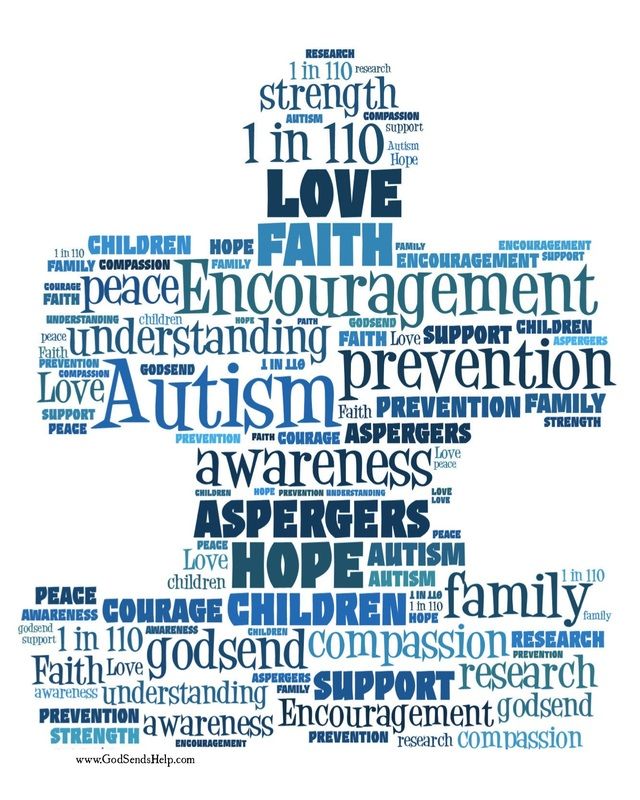
Data Entry Clerk
Average Salary: $33,402
The job of data entry clerk is common common among those on the autism spectrum. People with ASD appreciate that this job rarely requires anything more than a high school diploma. Plus, the work is solitary and does not vary much from day to day, meaning it’s easy to stick to a comfortable routine. Data entry clerks are employed by companies, and tasks include:
- entering information into a computer database
- transcribing information from recordings
- keeping data rosters up to date.
Dog Trainer
Average Salary: $35,722
A dog trainer is a great job choice for any person with autism who loves to spend time with animals. While most dog trainers work with private clients to train puppies and adult dogs in basic manners, others work with dogs who need to overcome fear or bad habits. Others train dogs for movies and television.
Financial Analyst
Average Salary: $60,526
Another ideal job for a person who’s skilled in mathematics is that of financial analyst. Financial analysts study marketplace trends and demographics, and help their employer make smart investments. Organization and attention to detail are important skills for a financial analyst to have, as tasks include:
Financial analysts study marketplace trends and demographics, and help their employer make smart investments. Organization and attention to detail are important skills for a financial analyst to have, as tasks include:
- creating budgets
- reports
- doing analysis.
Forensic Science Technician
Average Salary: $49,490
If the thought of blood, gore, and bodies doesn’t bother you, then consider pursuing a job as a forensic science technician. Forensic science technicians work for police departments. They work with forensic scientists to gather and analyze crime scenes. A forensic science technician is responsible for:
- observing evidence
- preparing diagrams
- writing reports.
Gardener
Average Salary: $36,248
A job as a gardener is an excellent choice for anyone who enjoys spending time outside and working with their hands to create natural beauty. Most gardeners are self-employed, or work for small landscaping companies. Others are employed by schools, businesses, or a city’s Parks and Recreation department. Tasks include:
Most gardeners are self-employed, or work for small landscaping companies. Others are employed by schools, businesses, or a city’s Parks and Recreation department. Tasks include:
- mowing
- planting flowers
- weeding
- trimming hedges.
Janitor
Average Salary: $28,989
Janitors are an integral addition to any school or office setting. They are responsible for:
- cleaning floors
- removing garbage
- maintaining restrooms and kitchens
- making minor repairs
Many people are drawn to the role of janitor because it involves working by one’s self, and does not usually require anything more than a high school diploma.
Journalist
Average Salary: $40,390
For those with an interest in current events and a good grasp of the English language there is journalism. Journalists can work for:
- websites
- news organizations
- newspapers
Though researching and writing articles is typically done on one’s own, the job often includes interviewing a variety of people.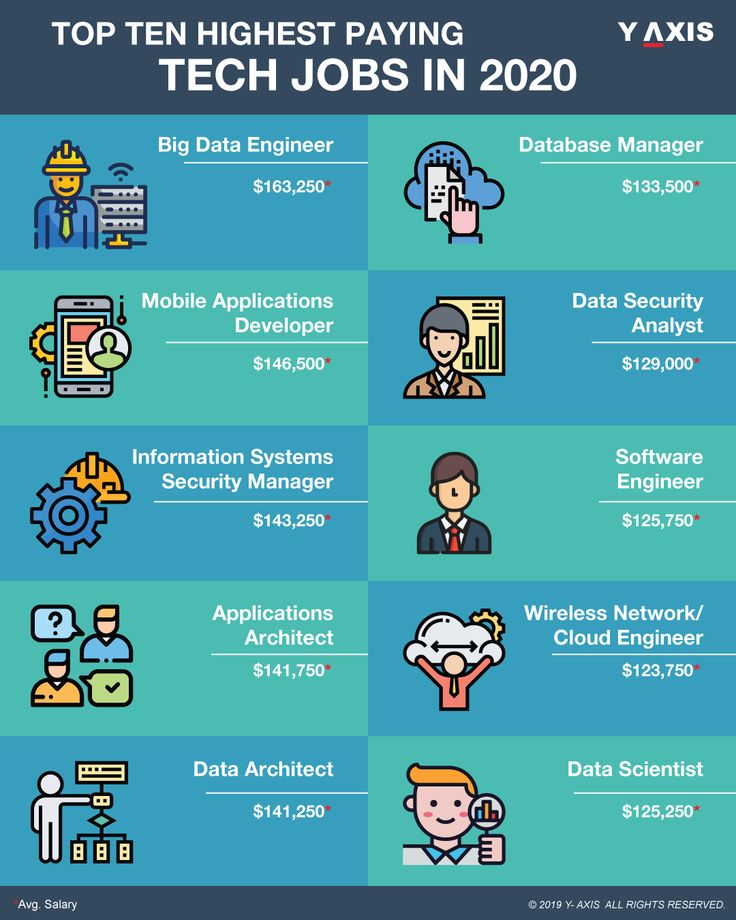
Librarian
Average Salary: $50,167
A librarian may be the perfect job for the book lover with autism! Librarians may work at:
- a public library
- a government library
- a school or university library
Librarians are typically responsible for maintaining the library’s collections, organizing documents, and checking books in and out.
Mechanical Engineer
Average Salary: $70,427
To be a mechanical engineer, a person must be skilled in the use of software and have good problem-solving skills. We think this describes a lot of people on the autism spectrum! Mechanical engineers help plan and manufacture new types of products. So they must also work well on, and communicate with, a team. For this reason, the job of mechanical engineer may be best suited for those with high-functioning autism or Asperger’s.
Medical Lab Technician
Average Salary: $55,298
To be medical lab technician, one must be interested in anatomy and medical science, have good organizational skills, and be unafraid of things like blood and urine. Lab techs work with people of all ages and backgrounds, and collect samples that need to be tested. Then, they use microscopes and other tools to test those samples.
Lab techs work with people of all ages and backgrounds, and collect samples that need to be tested. Then, they use microscopes and other tools to test those samples.
Meteorologist
Average Salary: $55,129
While most people think of the weather person on their local news station when they see “meteorologist,” the vast majority of meteorologists do not present their findings to a live television audience. Rather, they make observations and predictions about the weather, study historical data, and create weather-related graphs. Then, they present their findings to:
- television meteorologists
- newspapers
- farmers
- other groups.
Paralegal
Average Salary: $48,132
Paralegals research all sorts of legal, business, and regulatory information for the lawyers they work for. Other tasks include filing documents, and accompanying lawyers to client meetings and court as a sort of assistant. Paralegals must be very organized, have an excellent command of reading and writing, and be comfortable asking a series of questions to potential clients.
Paralegals must be very organized, have an excellent command of reading and writing, and be comfortable asking a series of questions to potential clients.
Photographer
Average Salary: $46,179
Those on the autism spectrum who enjoy being creative and taking photographs may do very well as a photographer. Most photographers work for themselves, so their hours, clients, and work load are entirely up to them. While some photographers photograph nature or places for magazines, stock photo websites, or websites, others take photos of:
- weddings
- families
- new babies
- graduations.
Plumber
Average Salary: $53,208
Everyone needs a plumber at some point! Though it requires some talking with clients, most of what a plumber does is done in solitude — ideal for the plumber with ASD who would prefer less interaction. Plumbers install and maintain water systems in homes and other buildings.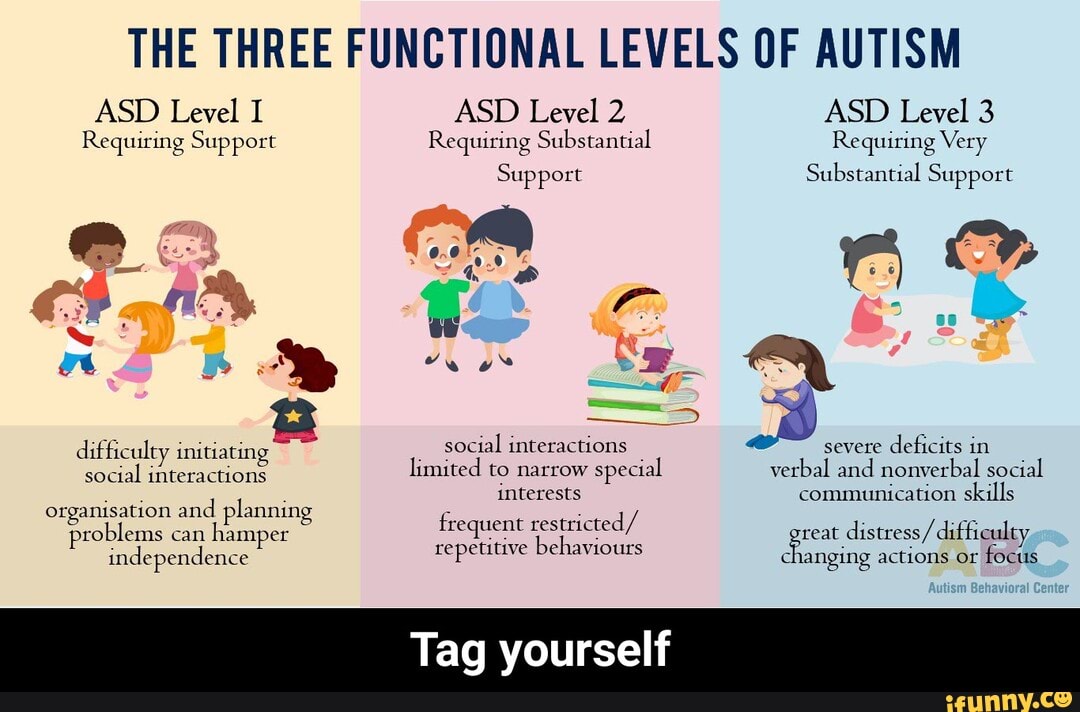 Common tasks include:
Common tasks include:
- installing new systems
- cutting new pipes
- fixing toilets and appliances.
Software Engineer
Average Salary: $85,009
Those who enjoy computers, codes, and working [mostly] alone might really like the idea of being a software engineer. Software engineers are typically the people who help to develop different software functions as created by the software design team. Working with programmers and coders is a must, though software engineers are bound to have lots of time building and testing functions on their own.
Software Tester
Average Salary: $56,170
Software testers are the ones responsible for testing new software programs before they are sent to clients or made available to the public. The job typically consists of running automated and manual test to ensure the software is free of bugs. For this reason, an interest in computers and programming is vital.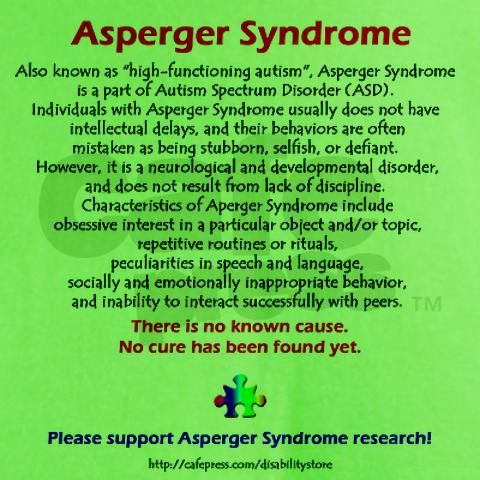
Technical Writer
Average Salary: $57,757
Technical writers are the people responsible for writing instruction manuals and other documents that communicate technical information. They often work in office settings and are employed by companies. Other times, they work from home. Successful technical writers must be organized and have a good command of language.
Veterinarian or Veterinary Technician
Average Salary: $80,396 (veterinarian), $33,699 (Veterinary Technician)
Because many people on the autism spectrum love and feel comfortable around animals, the jobs of veterinarian and veterinary technician were recommended to us over and over again as great jobs for people with autism. While a veterinarian is the main doctor for animals big and small, a veterinary technician meets each animal first and charts its weight, symptoms, and any concerns its owner may have.
Video Game Designer
Average Salary: $64,482
Because lots of people — including many on the autism spectrum! — enjoy playing video games, the job of video game designer is an intriguing one.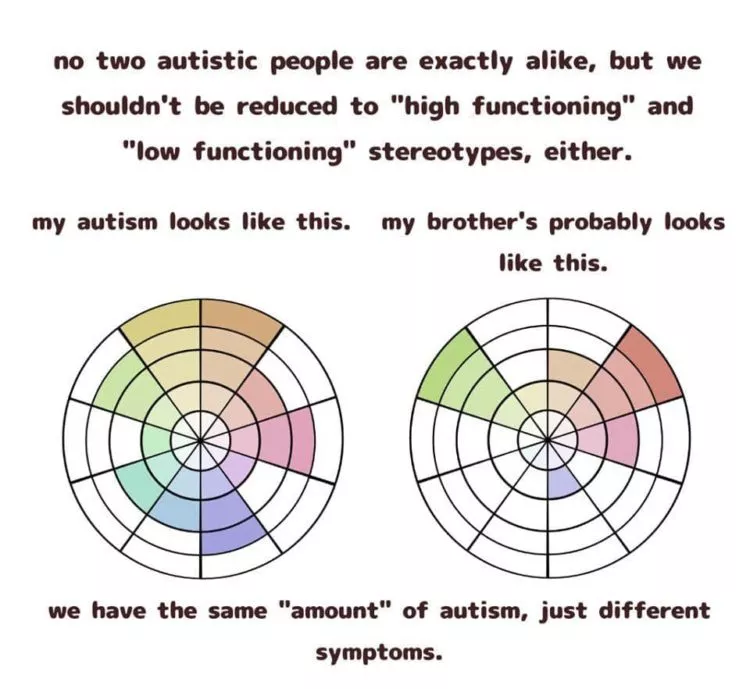 Video game designers use computers and gaming systems to create playable games for others. Usually, the job involves:
Video game designers use computers and gaming systems to create playable games for others. Usually, the job involves:
- coming up with an idea
- assisting in its design
- testing it to be sure it’s free of all bugs before release.
Writer
Average Salary: $49,533
Anyone who has a good grasp of the English language can find a way to make a living as a writer. While most people think of writers as those who write books, that’s not always the case. Many writers make their living as freelancers — that is, those who write articles, web content, and other pieces for:
- websites
- magazines
- newspapers
- businesses
- anyone else who needs something written.
7 Great Jobs for Individuals with High Functioning Autism
Individuals with high-functioning autism have different and unique abilities compared to the general population. Some of the characteristics that make them unique can attract them to certain career opportunities. It can be difficult for those with autism to perform well in a workplace that places so much value on extroversion, collaboration, and competition. For example, making small talk by the water cooler and on the elevator ride up to the office can be daunting for those with autism–even those without! Participating and collaborating in meetings can cause anxiety and leading a group or meeting can cause even more.
It can be difficult for those with autism to perform well in a workplace that places so much value on extroversion, collaboration, and competition. For example, making small talk by the water cooler and on the elevator ride up to the office can be daunting for those with autism–even those without! Participating and collaborating in meetings can cause anxiety and leading a group or meeting can cause even more.
It is common for those with high-functioning autism to choose occupations that do not require an excessive amount of social interaction or ones in which the daily routine can be sporadic and change on a whim. Some people are more likely to perform best in jobs that require attention to detail, skill mastery, and jobs that either allow the individual to set their own schedule or one that has a conventional and familiar schedule.
Here are seven examples of such jobs that may be attractive to those with high-functioning autism:
- Medical Laboratory Technologist
- Computer Programmer
- Reference Librarian
- Taxi Driver
- Telemarketer
- Artist/Designer
- Information Technology
1.
 Medical Laboratory Technologist
Medical Laboratory TechnologistMedical laboratory technologists work in hospital laboratories and other clinical locations and are in charge of running a complex array of machines and instruments that analyze blood, urine, tissue, and other substances. The job typically requires a Bachelor’s degree in Medical Technology or Life Sciences. Some states require licensure.
The job requires a vast array of knowledge, such as in the areas of cytotechnology and medical biology. Because laboratory results need to be precise and accurate, technologists must be detail-oriented and have the dexterity to handle medical samples and instruments effectively. The pay for a medical laboratory technologist is about $50,000 per year and the job outlook is excellent, with a growth of 16% in 2014.
Individuals with high-functioning autism would be comfortable in a work environment that focuses on using their technical skills rather than their conversational skills. The duties of this job are quite specific, demand attention to fine details, require a high level of organization and dependability, and require someone who will take the job seriously.
2. Computer Programmer
Computer programming is very suitable for individuals with high-functioning autism, especially those that are visual thinkers. Programming involves “coding,” which is using algorithms to generate executable computer programs. Knowledge of coding languages such as C++, Java, Cobol, Fortran, and Basic are required to create computer software. Programmers may choose to freelance or work for big companies like Google and Facebook. They can work in many fields including software design, industrial automation, or communications and network systems.
While many enter the field through majoring in computer science at a university, formal education is not required. It is possible to self-teach and master the coding language required to become a programmer.
This is a job that will satisfy the intellectual curiosity of individuals with autism. The duties of this career require logical thinking and an ability to analyze data, which comes from the left side of the brain; this side is more dominantly active in those with autism.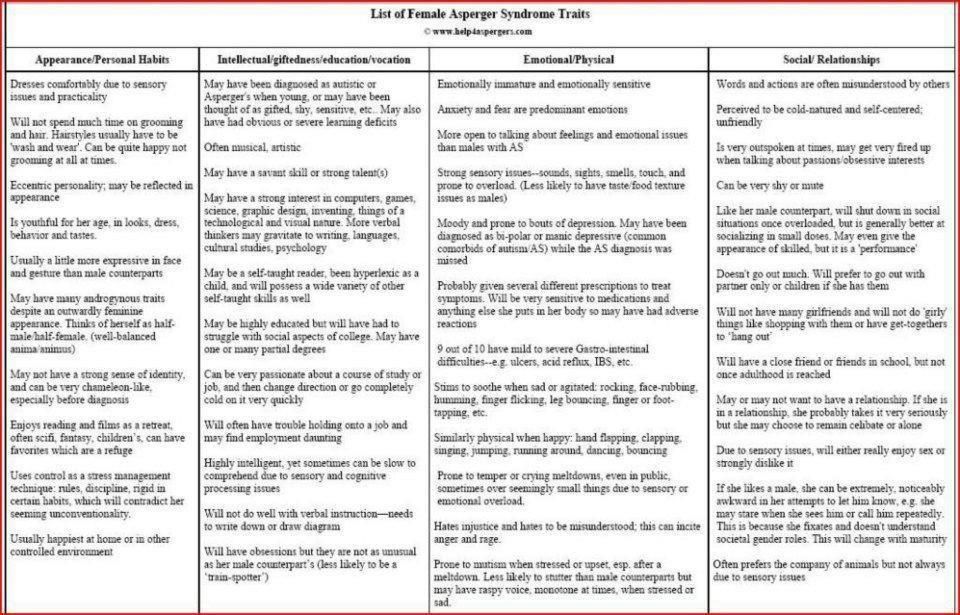 The job also is quite predictable, which is a wonderful benefit for some.
The job also is quite predictable, which is a wonderful benefit for some.
3. Reference Librarian
The role of the reference librarian is to help library users with research by finding the appropriate books and resources, cataloging an entire library’s books, and checking out books to patrons. Reference librarians need to be knowledgeable on a wide range of topics. They can be employed by colleges, the government, museums, and other information services. Most reference librarian job openings require a Master’s in Library Science and the national median salary for this position is at around $48,000 per year.
Library science can make a fulfilling career for individuals with high-functioning autism who like to learn the details of any and every subject. The ability to be organized and think critically makes this job suitable for those with autism; the job also requires some patience and attention to detail.
Being a reference librarian can be a peaceful and calming job for those with autism.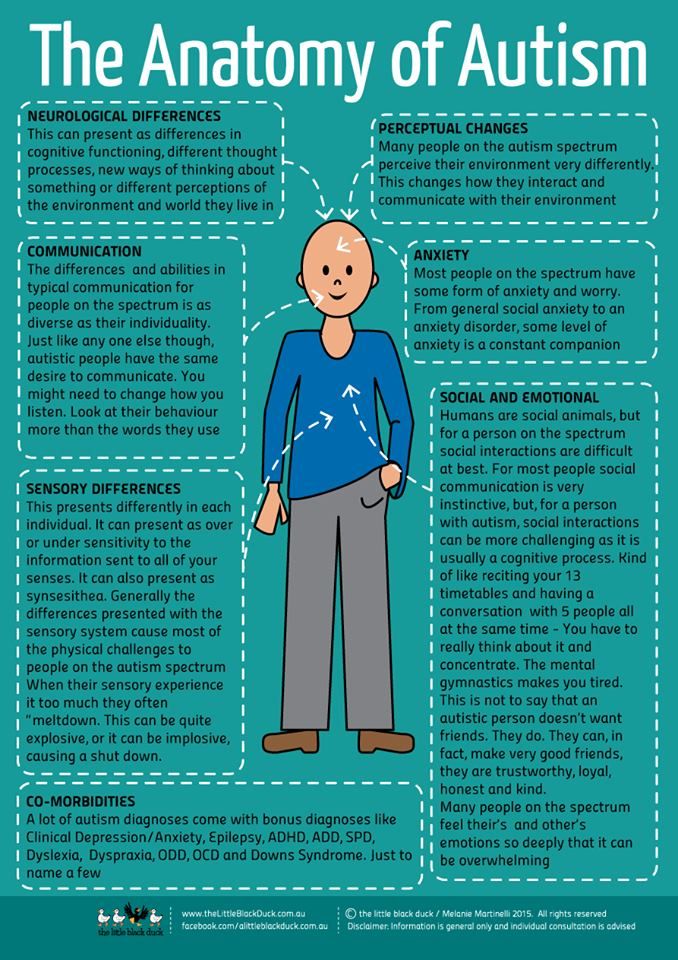 There is not much environmental stimulation to be had and while reference librarians will need to help people, it is not necessary for them to carry on social conversations or to have an extroverted personality.
There is not much environmental stimulation to be had and while reference librarians will need to help people, it is not necessary for them to carry on social conversations or to have an extroverted personality.
4. Taxi Driver/Ride Share Driver
Taxi and rideshare driving is a great job for individuals with high-functioning autism who will tend to remember every single street and have above-average visuospatial intelligence. Although modern GPS systems have replaced maps, being a taxi or rideshare driver who has a picture-perfect memory of every street in their memory is always helpful for finding the best route.
Driving is an activity that requires concentration and manual dexterity and is suitable for individuals who like the challenge of bringing people to their destinations in an efficient manner. Riders will also appreciate talking to a driver that is straightforward and knowledgeable about the area. And if the conversation does not go well, it’s okay because the driver is off the hook once they arrive at their destination.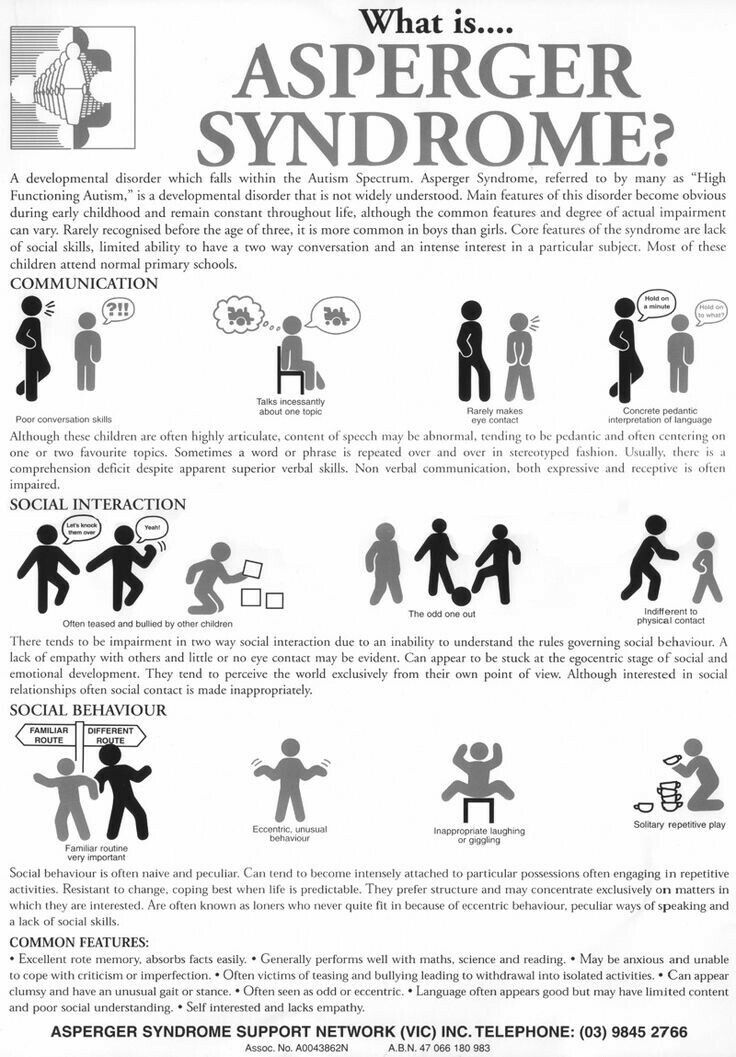
5. Telemarketer
It may seem surprising to recommend telemarketing as a job for individuals with high-functioning autism. After all, telemarketing requires talking to strangers on the phone and selling them a service or assisting with a problem throughout each and every day. However, the good thing for people with autism is that telemarketers often follow a detailed script.
Unlike everyday conversations that happen without a script, these telemarketing conversations are very predictable. Individuals with autism will appreciate having the formula to follow and knowing the direction of every conversation that they will have on the job. Even people with autism can enjoy having these types of interactions, even if they may feel uncomfortable under some circumstances.
Telemarketing allows people with high-functioning autism to practice and use conversation, without having to deal with the conflicts that may arise in face-to-face communication. Many companies hire telemarketers with a wide range of degrees, and much can be learned on the job as well.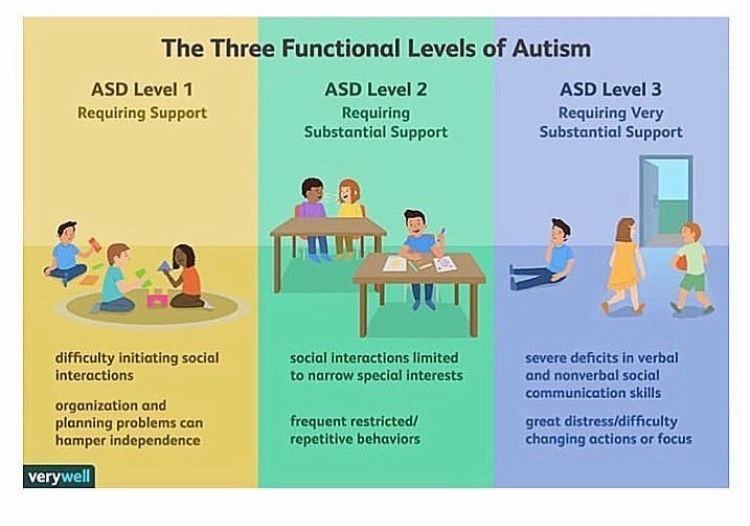
6. Artist/Designer
Even though it is common for individuals with autism to be extremely logical, organized, and predictable, that does not mean that they lack a creative side. Throughout history and currently, there are artists, digital designers, fashion designers, and musicians who are on the spectrum. These individuals see things from a different perspective and are able to communicate that through their work.
Someone who has high-functioning ASD might enjoy being creative as a means of expressing their emotions, thoughts, and allowing the general population to see things through their eyes. When someone has a career in this field, they can choose whether they want to work solo or work for a company. There are many freelance opportunities out there for artists and designers as well as ways for these individuals to start a business of their own.
7. Information Technology
People who work in information technology (IT) typically work behind the scenes within a business or organization to ensure that everything related to technology is going smoothly. There are also jobs related to web designing, software engineering, and web development that are considered IT jobs. IT jobs are always needed and are in high demand; they also pay quite well. The national median average salary for someone who works in IT is $62,838.
There are also jobs related to web designing, software engineering, and web development that are considered IT jobs. IT jobs are always needed and are in high demand; they also pay quite well. The national median average salary for someone who works in IT is $62,838.
IT specialists work hard to review diagnostics and assess the functionality and efficiency of systems, implement security measures, monitor security certificates and company compliance of requirements, offer technical support to company staff and troubleshoot computer problems, install and update company software and hardware as needed, and anticipate and report the cost of replacing or updating computer items. These are all job responsibilities that someone with high-functioning autism would be great at.
Those who have high-functioning autism pair wonderfully with the duties and responsibilities of an IT job. They generally will work more with equipment and technology rather than people, allowing them to focus on the details of their job and not feel anxious about the possibility of social interaction.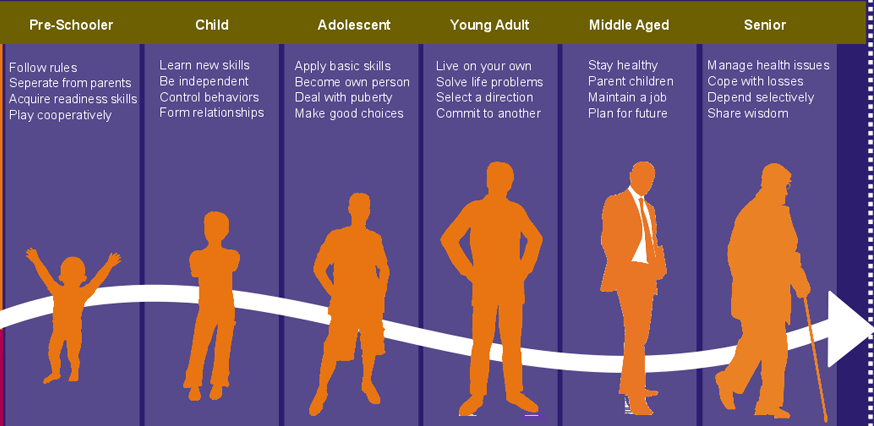
Conclusion to Great Jobs for Individuals with High Functioning Autism
It is obvious that individuals with high-functioning autism can perform well and be successful and content in many different jobs. Simply because someone has autism, does not mean that they will never work or become a successful contributor to society. The opposite is actually true. There are many extremely successful and prominent individuals who are on the spectrum and working and doing great things for our world.
While some positions require more social interaction with people or take the person with autism out of their comfort zone, there are various positions with a greater predictable environment, where the goal of each task and conversation are clear. Some jobs require artistic ability, others require visuospatial intelligence. Whatever their interest may be, high-functioning autistic individuals have a vast array of fields to dedicate their careers to.
Brittany Cerny
Master of Education (M.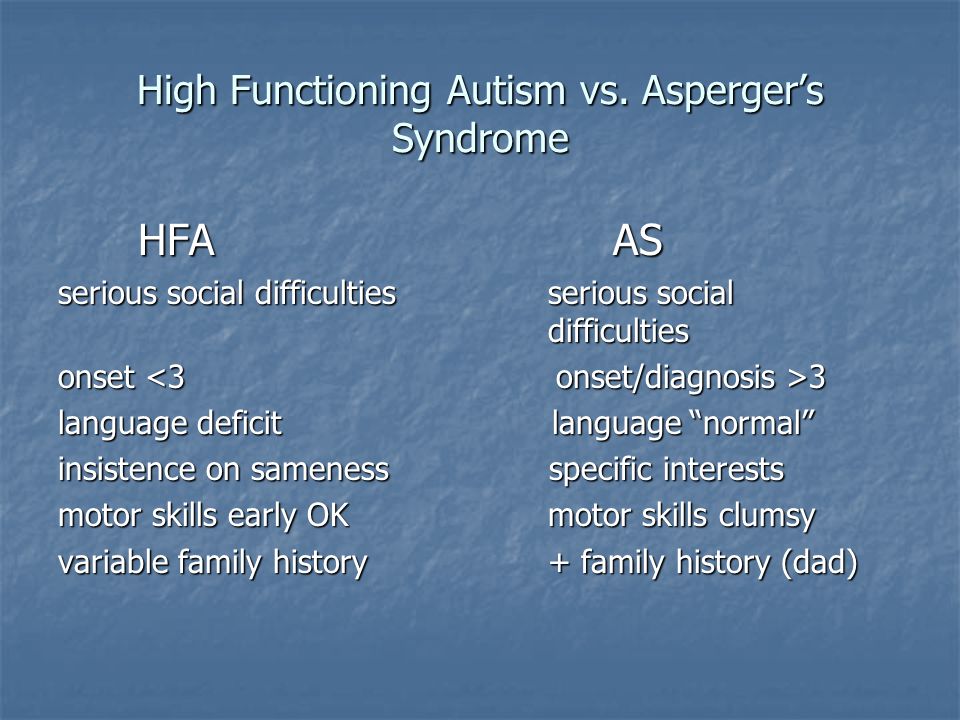 Ed.) | Northeastern State University
Ed.) | Northeastern State University
Behavior and Learning Disorders | Georgia State University
Updated September 2021
Related:
- What is Animal-Assisted Therapy for Autism?
- 30 Best Employers for People With Autism
- 20 Autism Charities Worthy of Your Donations
- What is a Savant?
Hidden powers. About Employment for People with ASD
Employees with autism spectrum disorders usually struggle to find even the most basic jobs, but have recently been seen as a valuable resource that HR professionals are after. Autistic people maintain a high concentration in monotonous work, are not distracted, are attentive to details, and may have extensive knowledge in a field of interest to them. Large corporations such as Microsoft and SAP and small businesses are increasingly hiring such employees. For their sake, you have to change corporate rules, abandon standard job interviews and appoint special assistants, but the result fully pays for the costs.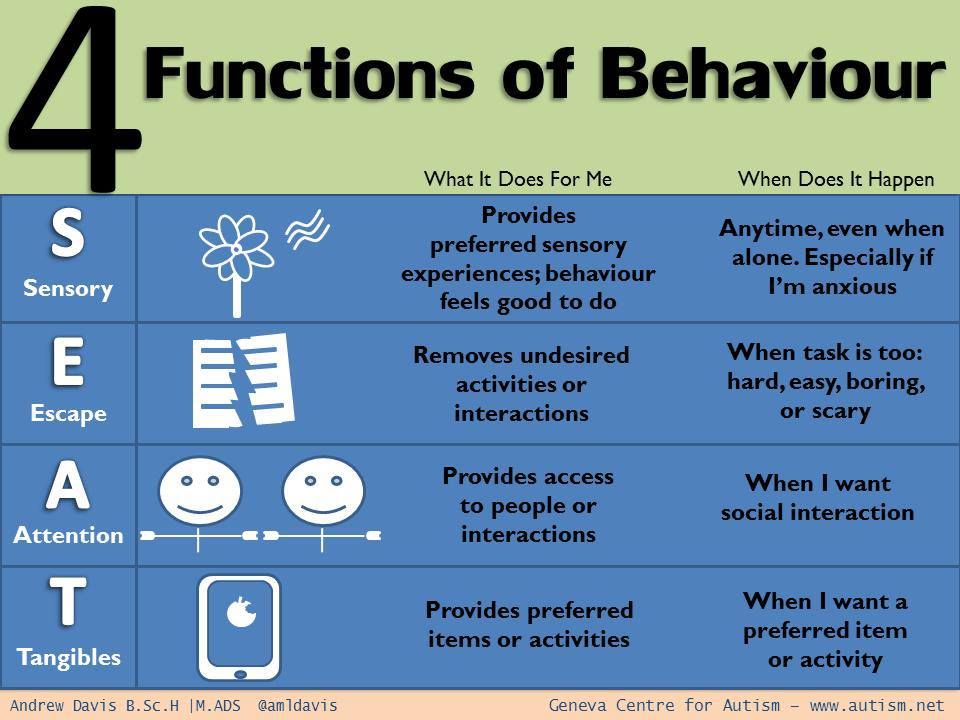 A million-strong labor market on the sidelines of a progressive society - in the material of Lenta.ru.
A million-strong labor market on the sidelines of a progressive society - in the material of Lenta.ru.
A valuable resource
Most people with autism spectrum disorders (ASD) fail to get jobs because they have communication problems, do not fit into corporate boundaries and rarely make a good impression in an interview. According to National Autism Indicators, in 2017 in the US only 14% of people with ASD were employed, compared to 15% in the UK. But recently, employers have seen the strengths of autistic people and are now specifically looking for such candidates. They are favorably distinguished by high concentration and attention to detail, they do not get tired of doing monotonous repetitive work, they are good at finding patterns, so it is not surprising that they are becoming in demand in a variety of areas.
ASD is a continuum of neurodevelopmental disorders that manifests itself in significant deficits in social communication and social interaction, as well as a limited (narrow) and repetitive repertoire of behaviors, interests, and activities.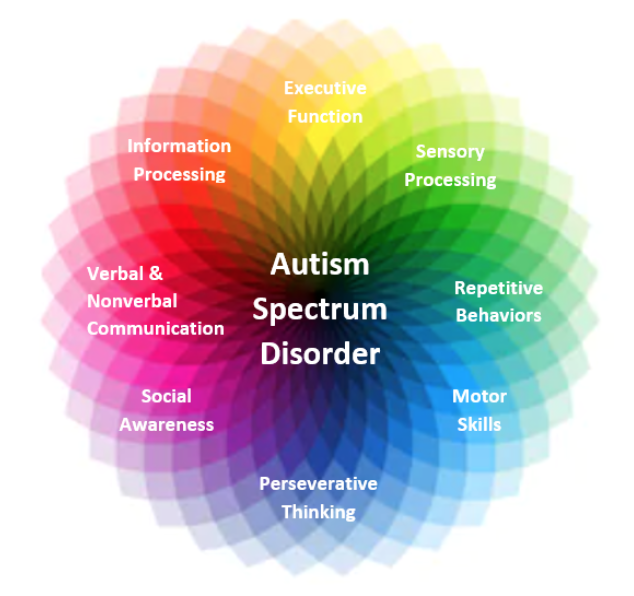 The main signs of ASD include, in particular, problems with understanding and evaluating the emotions of other people; difficulty understanding body language and other non-verbal expressions of others; difficulty making eye contact and using gestures. There are also stereotypes (or stims) - the constant repetition of the same gestures and movements, often with vocalizations. Echolalia, when a person completely repeats words heard somewhere while maintaining intonation. Strict observance of certain rituals, for example, strict adherence to certain routes, attachment to certain clothes. Hyper- and hypo-reactivity to certain sensory stimuli, such as intolerance to loud noises or avoidance of any touch. Violation of the functional language or refusal to use speech skills for communication (the same echolalia), there are also cases when speech is not used in principle.
The main signs of ASD include, in particular, problems with understanding and evaluating the emotions of other people; difficulty understanding body language and other non-verbal expressions of others; difficulty making eye contact and using gestures. There are also stereotypes (or stims) - the constant repetition of the same gestures and movements, often with vocalizations. Echolalia, when a person completely repeats words heard somewhere while maintaining intonation. Strict observance of certain rituals, for example, strict adherence to certain routes, attachment to certain clothes. Hyper- and hypo-reactivity to certain sensory stimuli, such as intolerance to loud noises or avoidance of any touch. Violation of the functional language or refusal to use speech skills for communication (the same echolalia), there are also cases when speech is not used in principle.
Such employees are also more loyal. According to SourceAbled, the autistic workforce has a turnover rate of 8 percent, compared to 47 percent for neurotypical employees.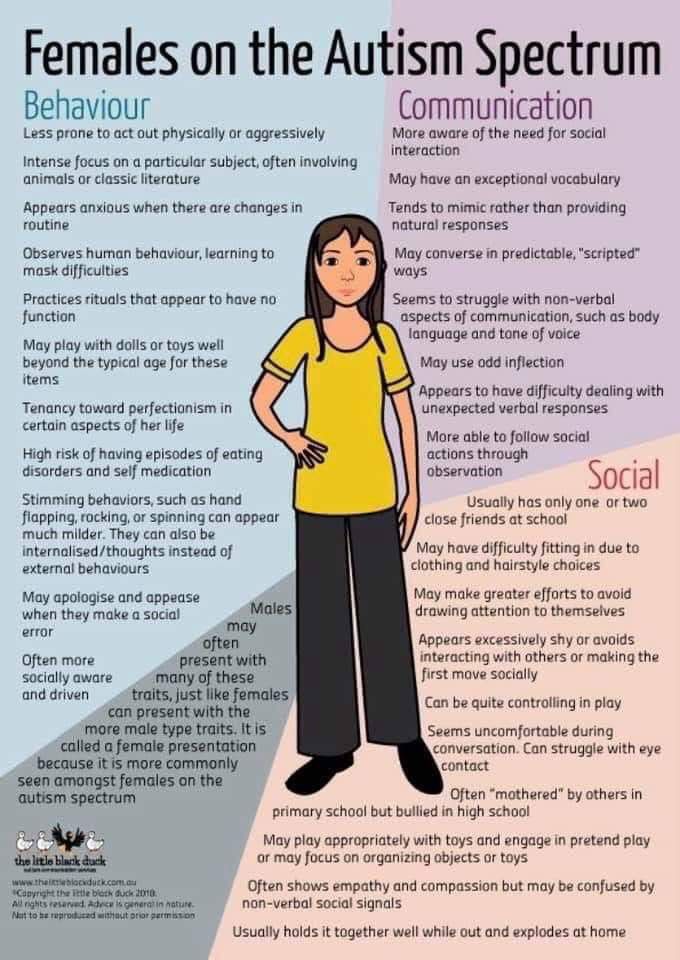 However, people with ASD can be more productive. For example, Rangam Consultants Inc., a consulting company participating in the Work for autism program. managed to cut costs for one of their clients by 7 percent by hiring people with autism spectrum disorders. “These people are loyal, diligent and don’t like to change jobs,” said Tim Weiler, director of consulting firm Towers Watson. A few years ago, his company hired 18 people with ASD to participate in a pilot program and has since been increasing the number of such employees in its staff, as it turned out to be commercially profitable. Emma Jones, a member of the National Autistic Society of Great Britain's employment team, also says that over the past few years they have been approached by more organizations that have learned that autistic people have strengths that can be used in business.
However, people with ASD can be more productive. For example, Rangam Consultants Inc., a consulting company participating in the Work for autism program. managed to cut costs for one of their clients by 7 percent by hiring people with autism spectrum disorders. “These people are loyal, diligent and don’t like to change jobs,” said Tim Weiler, director of consulting firm Towers Watson. A few years ago, his company hired 18 people with ASD to participate in a pilot program and has since been increasing the number of such employees in its staff, as it turned out to be commercially profitable. Emma Jones, a member of the National Autistic Society of Great Britain's employment team, also says that over the past few years they have been approached by more organizations that have learned that autistic people have strengths that can be used in business.
Melanie Lugi, vice president of research at consulting firm Gartner, believes that over the next ten years, the introduction of new workflow algorithms will allow 350 million people with mental disorders to find work. “Company leaders who ignore change do so at their own peril and harm their organizations,” she said. Artem Novikov, a child psychiatrist at the Center for Curative Pedagogics, told Lente.ru that the balance of power in the labor market could change significantly in the near future. “In general, the mental state of both children and adults is changing, there are more and more neuro-atypical people. Due to the abundance of information flows, half of the people develop an attention deficit. It is difficult for them to concentrate for a long time, attention constantly jumps, in such a situation a person with autism may have an advantage, because if he is interested in the activity, he will work steadily, without being distracted by anything, without reading books about multitasking and articles on how avoid procrastination. He will just do it and wait for the rest,” he explained.
“Company leaders who ignore change do so at their own peril and harm their organizations,” she said. Artem Novikov, a child psychiatrist at the Center for Curative Pedagogics, told Lente.ru that the balance of power in the labor market could change significantly in the near future. “In general, the mental state of both children and adults is changing, there are more and more neuro-atypical people. Due to the abundance of information flows, half of the people develop an attention deficit. It is difficult for them to concentrate for a long time, attention constantly jumps, in such a situation a person with autism may have an advantage, because if he is interested in the activity, he will work steadily, without being distracted by anything, without reading books about multitasking and articles on how avoid procrastination. He will just do it and wait for the rest,” he explained.
Hope IT
One of the first companies in the IT business to hire people with ASD was Specialisterne.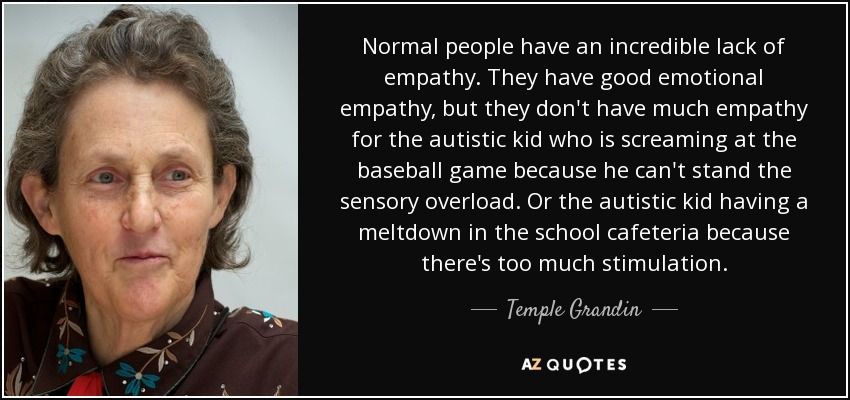 This software testing and consulting company was founded in 2004 as a place where people with ASD can work (75 percent of employees there). “Employers don't hire people with autism because they're locked into a social paradigm where everyone is looking for happy, average employees, good team players who promote themselves,” says Torquil Sonn, founder of the company. As a result, talented employees are left without work, while jobs are vacant. Sonn sees his task as bridging this gap. He notes that while hiring people with autism goes against social norms in many places, company policies have already begun to change. However, do not expect quick changes, in his words, this process is more like "a marathon, not a sprint." It is worth noting that from the very beginning it was a commercial project and at the same time quite successful.
This software testing and consulting company was founded in 2004 as a place where people with ASD can work (75 percent of employees there). “Employers don't hire people with autism because they're locked into a social paradigm where everyone is looking for happy, average employees, good team players who promote themselves,” says Torquil Sonn, founder of the company. As a result, talented employees are left without work, while jobs are vacant. Sonn sees his task as bridging this gap. He notes that while hiring people with autism goes against social norms in many places, company policies have already begun to change. However, do not expect quick changes, in his words, this process is more like "a marathon, not a sprint." It is worth noting that from the very beginning it was a commercial project and at the same time quite successful.
In 2012, SAP India hired five people with ASD. The company acknowledges that they were inspired by the success of Specialisterne. Pilot projects showed that this model helps business development, so a new goal was announced - autistic people should make up one percent of all employees of the company, which is about 600 people.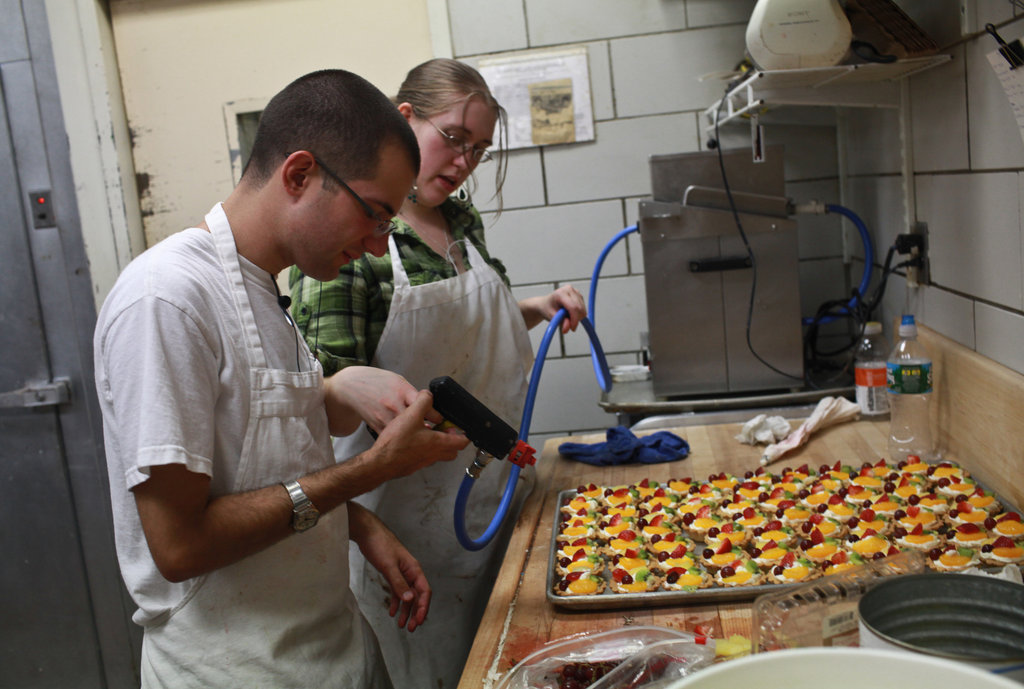 “Software testing requires a lot of precision and careful work, and it's also mind-bogglingly boring. It is important to do it right, but it is very difficult to hold attention long enough,” explains Robert Austin, professor of IT management at the Copenhagen Business School, explaining the success of autists in the IT sector. As the professor emphasizes, this is by no means a charity.
“Software testing requires a lot of precision and careful work, and it's also mind-bogglingly boring. It is important to do it right, but it is very difficult to hold attention long enough,” explains Robert Austin, professor of IT management at the Copenhagen Business School, explaining the success of autists in the IT sector. As the professor emphasizes, this is by no means a charity.
Peter Brabazon, head of Specialisterne Ireland, recalled that the IT sector is projected to face a shortage of approximately 7,000 jobs, so people with autism, who tend to have trouble finding work, will be an extremely valuable resource for the industry. “They are often very good at spotting bugs and pay a lot of attention to detail. In our experience, they work extremely hard,” he says.
Autistic people change the rules
In order to use this resource, companies must first adapt corporate regulations. SAP for Autistics has abandoned traditional interviews. Instead, candidates are given individual and team assignments to work on, followed by a five-week training period designed by Specialisterne. A significant part of the trainings is devoted to teaching social skills. For example, such questions are solved there: if the general director sent a letter to all employees by general mailing, is it necessary to respond in this case? Once approved, SAP Autism at Work participants are assigned mentors and colleagues to accompany them as volunteers. Neurotypical (not having identified mental disorders) employees at the same time take special courses on autism.
A significant part of the trainings is devoted to teaching social skills. For example, such questions are solved there: if the general director sent a letter to all employees by general mailing, is it necessary to respond in this case? Once approved, SAP Autism at Work participants are assigned mentors and colleagues to accompany them as volunteers. Neurotypical (not having identified mental disorders) employees at the same time take special courses on autism.
In 2015, Microsoft launched the inclusive recruitment program in the US. “Our goal is to help reduce unemployment among people with autism. They are underemployed and we have vacancies for them,” explained Neil Barnett, Director of Inclusive Recruitment. Autistic people are primarily recruited for technical positions, but positions in finance and marketing are also open to them. “When we started the program in 2015, our approach was simple. We've learned that the traditional hiring process, the front door at Microsoft, is a major hurdle for many talented candidates. So we changed the shape of the door so that candidates could showcase their talent,” says Barnet.
So we changed the shape of the door so that candidates could showcase their talent,” says Barnet.
-
Photo: News.sap.com
1/1
Microsoft has increased the interview time for candidates with ASD to five days. “We're really trying to get to know the person and let them show off their talent,” says Barnet. Like SAP, at Microsoft, employees with autism spectrum disorders have a community mentor who handles practical issues such as getting to work and a job coach. This is a colleague who accompanies a person during the work process, as a rule, they are selected from people who already have experience with autism. As a standard, they are attached for the first three months to help a new employee get comfortable, but the period can be extended. “We have employees who have retained their mentors for more than a year,” Barnet says.
As Artem Novikov clarified, even relatively complex work, such as that of software testers, can be performed by people with poor communication skills who are not high-functioning autistics. “If the work has a repetitive algorithm, even if it is complex, they can cope with it perfectly, but at the same time they will need assistants to accompany them to work or help with some everyday things like cooking or cleaning the apartment,” he says. Autistic people are also actively hired by Google, Hewlett-Packard, Salesforce Towers Watson, Ernst & Young and a number of other companies. Some of them have agreed to exchange personnel if the candidate is sufficiently qualified, but there is no suitable vacancy.
“If the work has a repetitive algorithm, even if it is complex, they can cope with it perfectly, but at the same time they will need assistants to accompany them to work or help with some everyday things like cooking or cleaning the apartment,” he says. Autistic people are also actively hired by Google, Hewlett-Packard, Salesforce Towers Watson, Ernst & Young and a number of other companies. Some of them have agreed to exchange personnel if the candidate is sufficiently qualified, but there is no suitable vacancy.
Competitive advantage
Autistic people, including low-functioning ones, are also used in small businesses. A classic example of a successful business that has provided jobs for people with ASD is Extraordinary Ventures (EV), founded in Chapel Hill, North Carolina. EV co-founder Greg Ireland wanted a job for his son Vinnie, who was diagnosed with autism. Vinnie has a complex demeanor, he hardly speaks, but is amazingly productive when it comes to working in a well-structured environment. These features gave Greg Ireland and other parents the same idea for a new business.
These features gave Greg Ireland and other parents the same idea for a new business.
At EV, workflows were initially tuned to match the skills and needs of the people they plan to hire. At the start, the resources were quite modest, so we had to abandon projects that required a lot of money. We needed an easy-to-manage business that would allow employees to develop and quickly return the investment. The EV structure now includes its own laundry, bus cleaning service and a scented candle manufacturing facility. The work itself is very structured, all employees receive individual instructions, the progress of work is controlled by trainers who, if necessary, take on communication issues.
-
Photo: Extraordinary Ventures
By 2018, EV already employed 50 people. The founders of the company admit that at first their employees, for most of whom it was the first job in their lives, were not very productive, but after a few months, after they got used to it, they showed an impressive result. “They are incredibly productive and reliable, so the business is doing great. So good that groups in Chicago, Michigan, New York, Massachusetts and Northern California are working to create their own business based on the EV model,” says Van Hatchell, managing director of the company.
“They are incredibly productive and reliable, so the business is doing great. So good that groups in Chicago, Michigan, New York, Massachusetts and Northern California are working to create their own business based on the EV model,” says Van Hatchell, managing director of the company.
As Artem Novikov explained, if a person with low-functioning autism does something that is in the range of his interests, he approaches the matter with the highest quality. “At the same time, it is important for him to keep the same algorithm. For example, he will wash the car strictly in a certain sequence, but if he is not allowed to finish the work, he can protest, because the stereotypical ritual is violated, ”he said.
-
Photo: SunPork Farms
Greg Ireland says that working for EV has opened his eyes to himself. “Thanks to this project, I saw that people do not want to be a burden. Work in our society is not just a way to earn a living, it is what defines a person's personality, ”he believes.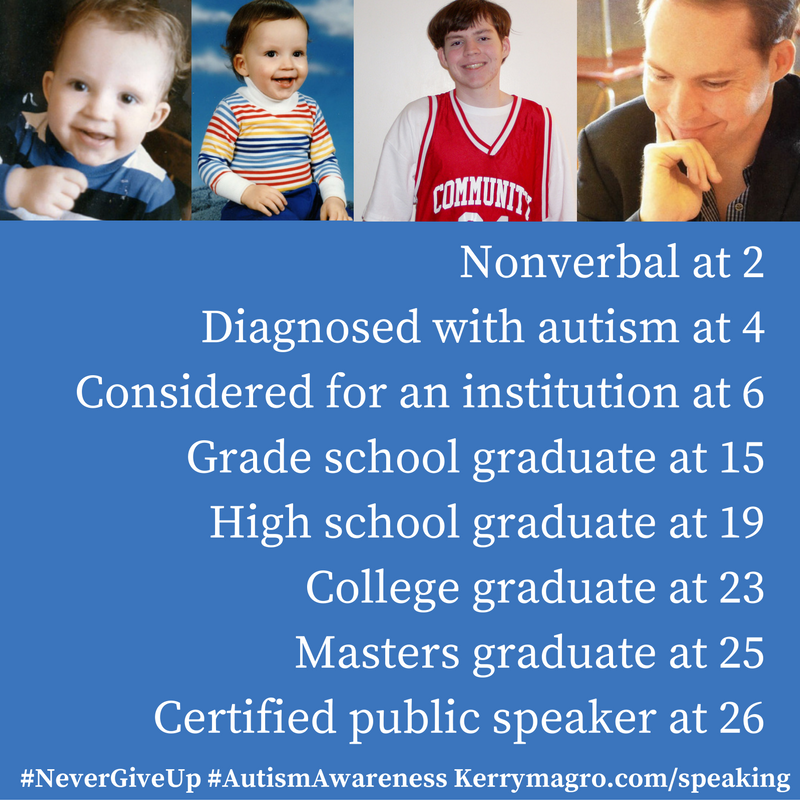 This is not the only such example. Rising Tide was created in Parkland, specializing in car washing, where autistic people also make up a large part of the staff.
This is not the only such example. Rising Tide was created in Parkland, specializing in car washing, where autistic people also make up a large part of the staff.
In Springfield, Massachusetts, JE Robison Service, a premium car repair company, operates this way. “Because I am autistic, I know every little thing about Rolls Royce and Bentley cars, so people from all over the country come to me. So autism has become a significant competitive advantage for me,” says company founder John Elder Robison. He doesn't have high hopes for employment programs at large companies, which by themselves are unlikely to change attitudes towards autism, but he believes that the autism spectrum disorder community is able to provide itself with jobs. Global changes will not happen out of pity or sympathy, but because it is dictated by the global transformation of the labor market. And here small business can become the main catalyst. “This is the place where we can live,” says Robison.
Definitely not charity
Another industry that has discovered the benefits of working with special employees is agriculture. In Australia, SunPork Farms, a large livestock company with a forty-year history, and the Collaborative Research Center for Living with Autism (Autism CRC) have launched a joint Autism and Agriculture program. The ability to concentrate well on repetitive tasks proved to be extremely important when breeding pigs. The head of the company, Robert van Barneveld, is a professor who has studied autism for a long time. He set out to prove that autistic people are good at caring for animals. “Our goal is to measure the success of the program, get more adults into this segment of the business, and then bring our experience and expertise to other livestock sectors that can also benefit from a more diverse workforce,” he said. In his opinion, this project will increase the human resources potential of agriculture around the world.
In Australia, SunPork Farms, a large livestock company with a forty-year history, and the Collaborative Research Center for Living with Autism (Autism CRC) have launched a joint Autism and Agriculture program. The ability to concentrate well on repetitive tasks proved to be extremely important when breeding pigs. The head of the company, Robert van Barneveld, is a professor who has studied autism for a long time. He set out to prove that autistic people are good at caring for animals. “Our goal is to measure the success of the program, get more adults into this segment of the business, and then bring our experience and expertise to other livestock sectors that can also benefit from a more diverse workforce,” he said. In his opinion, this project will increase the human resources potential of agriculture around the world.
They also ditched the standard hiring rules of CVs and interviews and instead let them get to work straight away. “We give people the opportunity to show themselves, not talk about themselves,” says Autism and Agriculture project leader Dr. Kirsty Richards. In his opinion, the success of this program should encourage businesses to take a broader look at traditional recruitment and training of employees. On farms, mentors help autistic people. “Some of them were hard-core pig farmers of the old school, from whom no one expected them to take on such a role and take responsibility for their colleagues, who must be trained and made sure that everything is fine with them, including after work. . The mentors themselves experienced a huge transformation in the course of their work,” says van Barneveld.
Kirsty Richards. In his opinion, the success of this program should encourage businesses to take a broader look at traditional recruitment and training of employees. On farms, mentors help autistic people. “Some of them were hard-core pig farmers of the old school, from whom no one expected them to take on such a role and take responsibility for their colleagues, who must be trained and made sure that everything is fine with them, including after work. . The mentors themselves experienced a huge transformation in the course of their work,” says van Barneveld.
ASD workers work full time and receive a full salary that is not subsidized from the budget. According to SunPork Farms management, the benefits far outweighed the costs. “This program is extremely valuable for business. We've gained a competitive edge by bringing in new hires who may think differently, so it's definitely not charity,” van Barneveld said.
Paul Shattuck, associate professor at the Autism Institute at Drexel University in Philadelphia, notes that communication problems cut off a large proportion of even high-functioning autistics. “More and more require that you successfully interact with other people. It is seen as part of the job and definitely turns off people with autism,” he says. Shattuck recalled that there are people who are ready to do work, even repetitive and monotonous, provided that the communication problem is solved for them, and they should not be neglected.
“More and more require that you successfully interact with other people. It is seen as part of the job and definitely turns off people with autism,” he says. Shattuck recalled that there are people who are ready to do work, even repetitive and monotonous, provided that the communication problem is solved for them, and they should not be neglected.
00:06 — 11 December 2018
Black Dream
Russians want to live well on oil money. Alaska has been doing it for 40 years
Companies that have launched programs to hire people with ASD admit that this has improved the workplace and helped to open up neurotypical employees as well. Thanks to the new personnel policy, high-functioning autistic people, who, according to Novikov, would not even have received a diagnosis, were able to get a job. However, things weren't going well for them in the West either, for example, one of Hewlett-Packard's cybersecurity specialists worked in the kitchen at McDonald's a few years earlier. Almost all employees can have implementation problems. “The psychological characteristics of people, even neurotypical ones, are practically not taken into account in our country, which prevents many people from truly opening up and using their potential,” he noted.
Almost all employees can have implementation problems. “The psychological characteristics of people, even neurotypical ones, are practically not taken into account in our country, which prevents many people from truly opening up and using their potential,” he noted.
A number of companies have already appreciated the benefits of working with neuro-atypical employees, but so far the business is only taking initial steps in this direction. The first such projects were started by people who were already well acquainted with autism, for example, they themselves had children with ASD. The results of the pilot projects have been quite impressive, and now more and more companies are changing their personnel policy. Thanks to this, a new model in the labor market is beginning to take shape. The emergence of more flexible work rules that take into account the mental characteristics of employees and do not imply constant communication and demonstration of optimism and commitment to the company will ultimately benefit all employees and create a more productive work environment.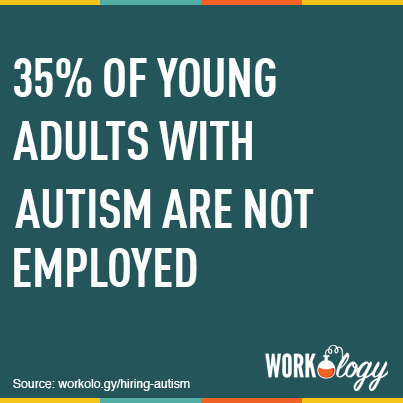
Pavel Chernyshov
Professions should be chosen to maximize the strengths of people with autism or Asperger's Syndrome. Both high-functioning and low-functioning people have poor short-term working memory, but their long-term memory is often better than most people. I find it difficult to cope with tasks that place high demands on short-term working memory. I can't handle multiple tasks at the same time. Table 1 lists examples of BAD jobs that are not suitable for me at all. Table 2 lists examples of suitable jobs for visual thinkers like myself that do not require math skills. Many jobs suitable for visual thinkers also work well for people with dyslexia. The visual thinking occupations in Table 2 do not require fast information processing in short-term working memory. Some professional advice for people with autism or Asperger's Syndrome: It is very important that high-functioning autistic people and people with Asperger's syndrome try to get a degree in the field in which they are going to work. Computer majors are a good choice because many of the best programmers have either Asperger's syndrome or some of its traits. Other good majors include accounting, library science, arts with a focus on commercial arts, and drafting. Majors such as history, political science, business, philology, or advanced mathematics should be avoided. However, it is possible to combine a degree in archiving with a degree in history, but a degree in archiving will make it easier to find a good job. Some people may be encouraged to start studying drawing, programming, or commercial art as early as high school. This will help them increase their motivation and become a refuge from the ridicule of others. In conclusion, people with Asperger's or autism have to compensate for low social skills by being so successful in their specialty that people "buy" their professional skills even though they have low social skills. That is why it is so important to make a good portfolio of your work. You will need to learn a few social skills to survive, but you can find work friends where you share common interests with people in the same profession. All my social life is somehow connected with my work. I am friends with those people with whom I am engaged in a common interesting business. Poor jobs for people with high-functioning autism or Asperger's Syndrome: Jobs that place high demands on short-term working memory Good Jobs for Visual Thinkers Good careers for non-visual thinkers: those with a knack for math, music or facts
 However, they make full use of my visual thinking and great long-term memory. Table 3 provides examples of careers for non-visual thinkers who have an aptitude for numbers, facts, or music. They are also associated with low short-term working memory requirements and use excellent long-term memory. Table 4 provides examples of jobs for low-functioning people with autism that they can excel at. With all types of autism and Asperger's syndrome, it is necessary to maintain low requirements for short-term working memory. If I were a computer, then I would have a huge hard drive that holds 10 times more information than a regular computer, but a very small processor. Using computer terminology 1999 years old, I have 1000 gigabytes of hard drive and 286 processor. Ordinary people may only have 10 gigabytes of hard disk space and a Pentium as a processor. I can't do two or three things at the same time.
However, they make full use of my visual thinking and great long-term memory. Table 3 provides examples of careers for non-visual thinkers who have an aptitude for numbers, facts, or music. They are also associated with low short-term working memory requirements and use excellent long-term memory. Table 4 provides examples of jobs for low-functioning people with autism that they can excel at. With all types of autism and Asperger's syndrome, it is necessary to maintain low requirements for short-term working memory. If I were a computer, then I would have a huge hard drive that holds 10 times more information than a regular computer, but a very small processor. Using computer terminology 1999 years old, I have 1000 gigabytes of hard drive and 286 processor. Ordinary people may only have 10 gigabytes of hard disk space and a Pentium as a processor. I can't do two or three things at the same time.
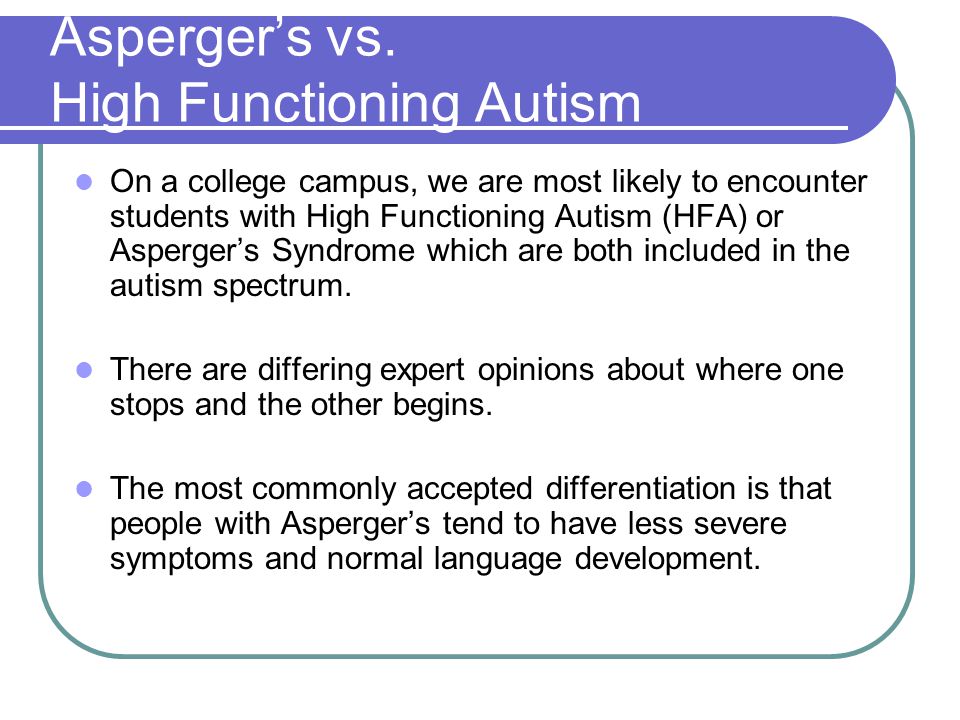
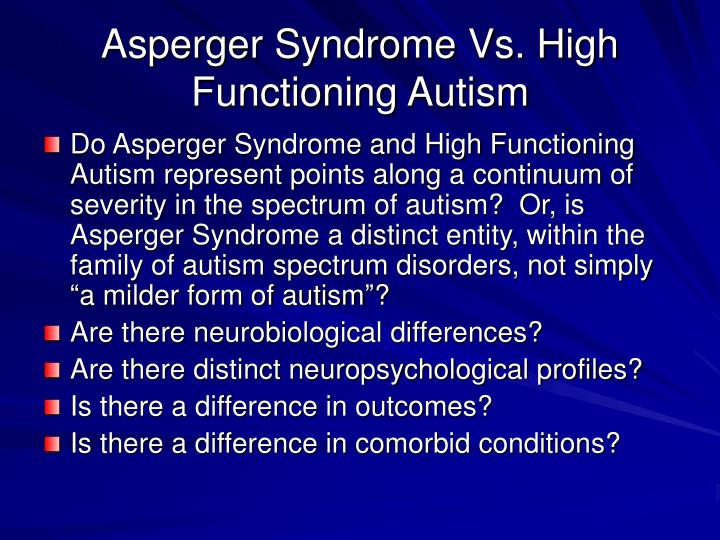 It can be difficult for low-income families to get a computer for a child to learn how to code or draw with a computer. You can try to get used computers at a low price or for free, for example, from a hardware refurbishment company. What many people don't know is that schools, banks, factories, and other organizations can have outdated computers sitting idle. It may not be a modern model, but it will fit for training.
It can be difficult for low-income families to get a computer for a child to learn how to code or draw with a computer. You can try to get used computers at a low price or for free, for example, from a hardware refurbishment company. What many people don't know is that schools, banks, factories, and other organizations can have outdated computers sitting idle. It may not be a modern model, but it will fit for training. 
Table 1
Table 2
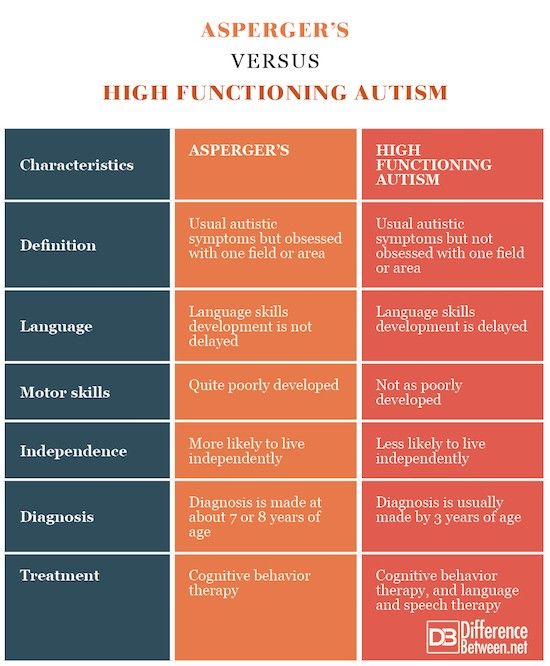

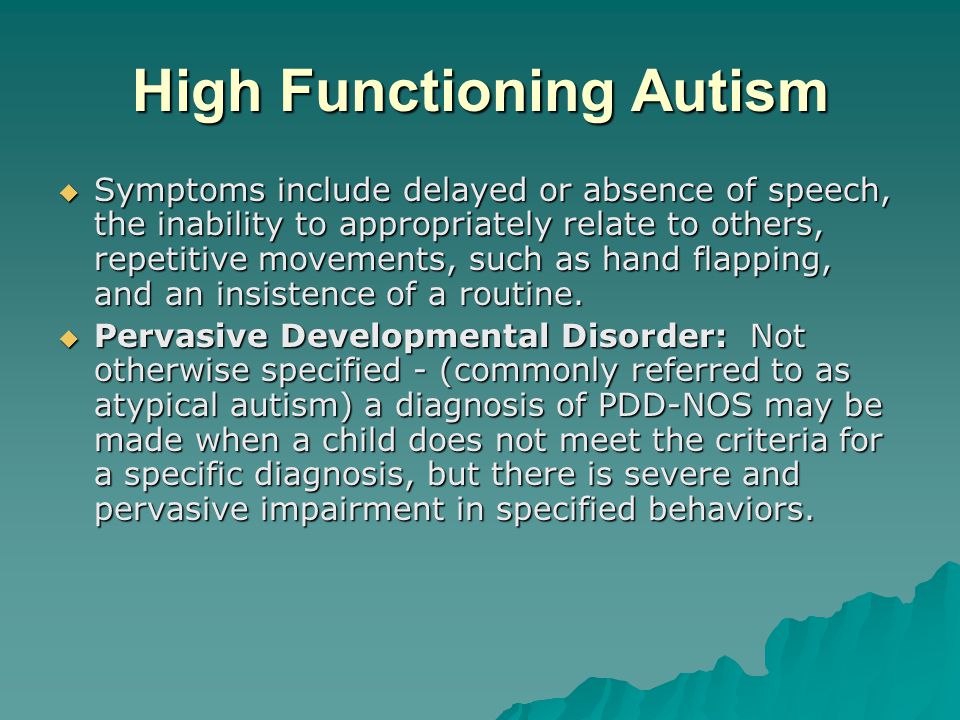 Companies are hiring immigrants because good programmers are still in short supply.
Companies are hiring immigrants because good programmers are still in short supply. Table 3
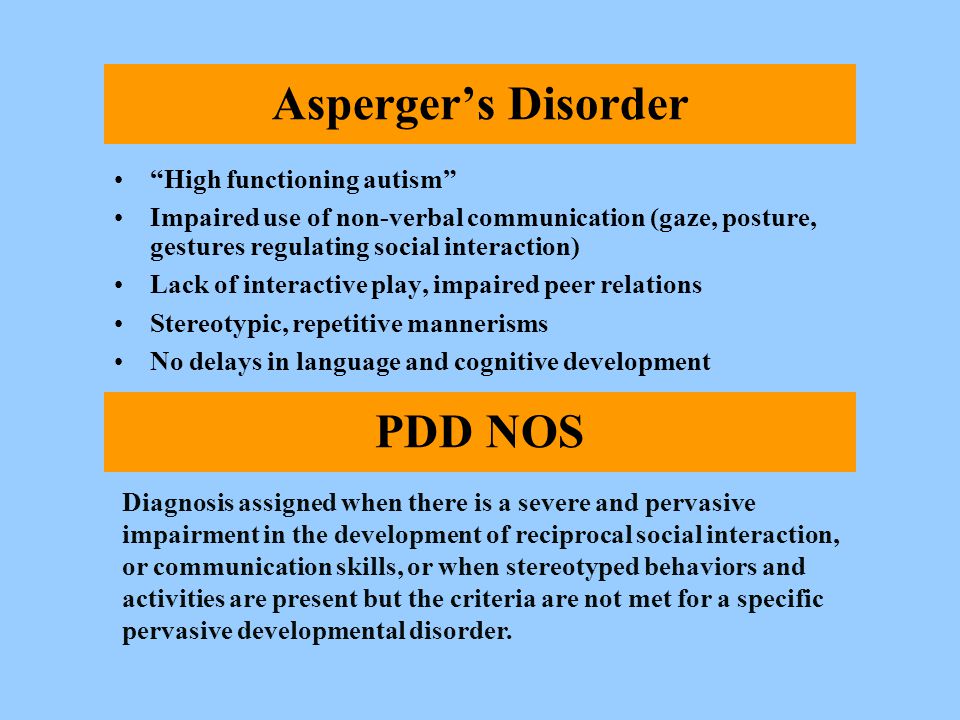
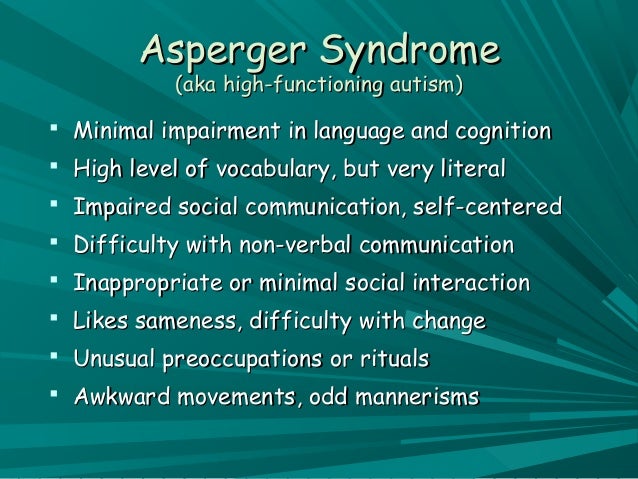
Learn more


